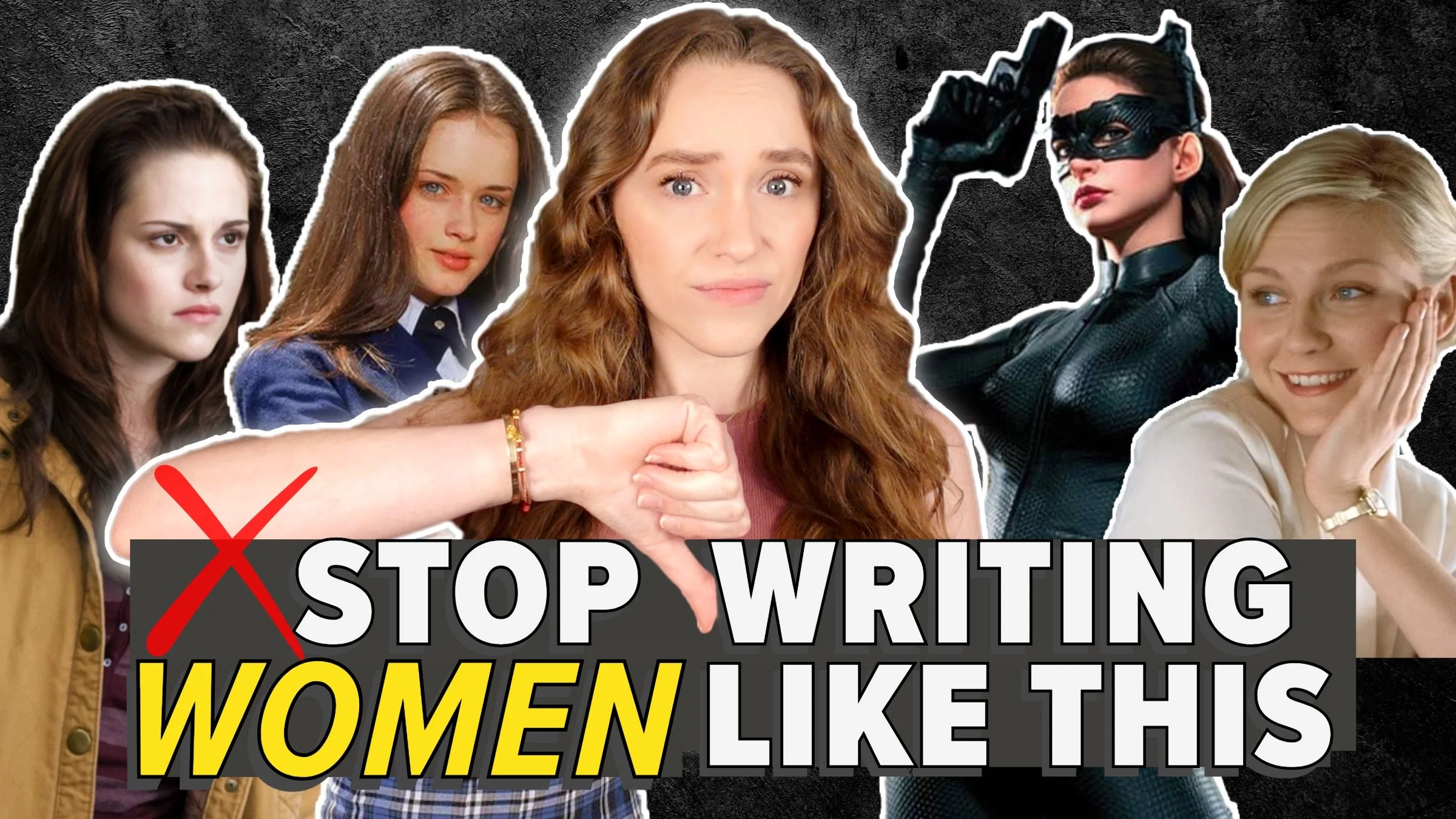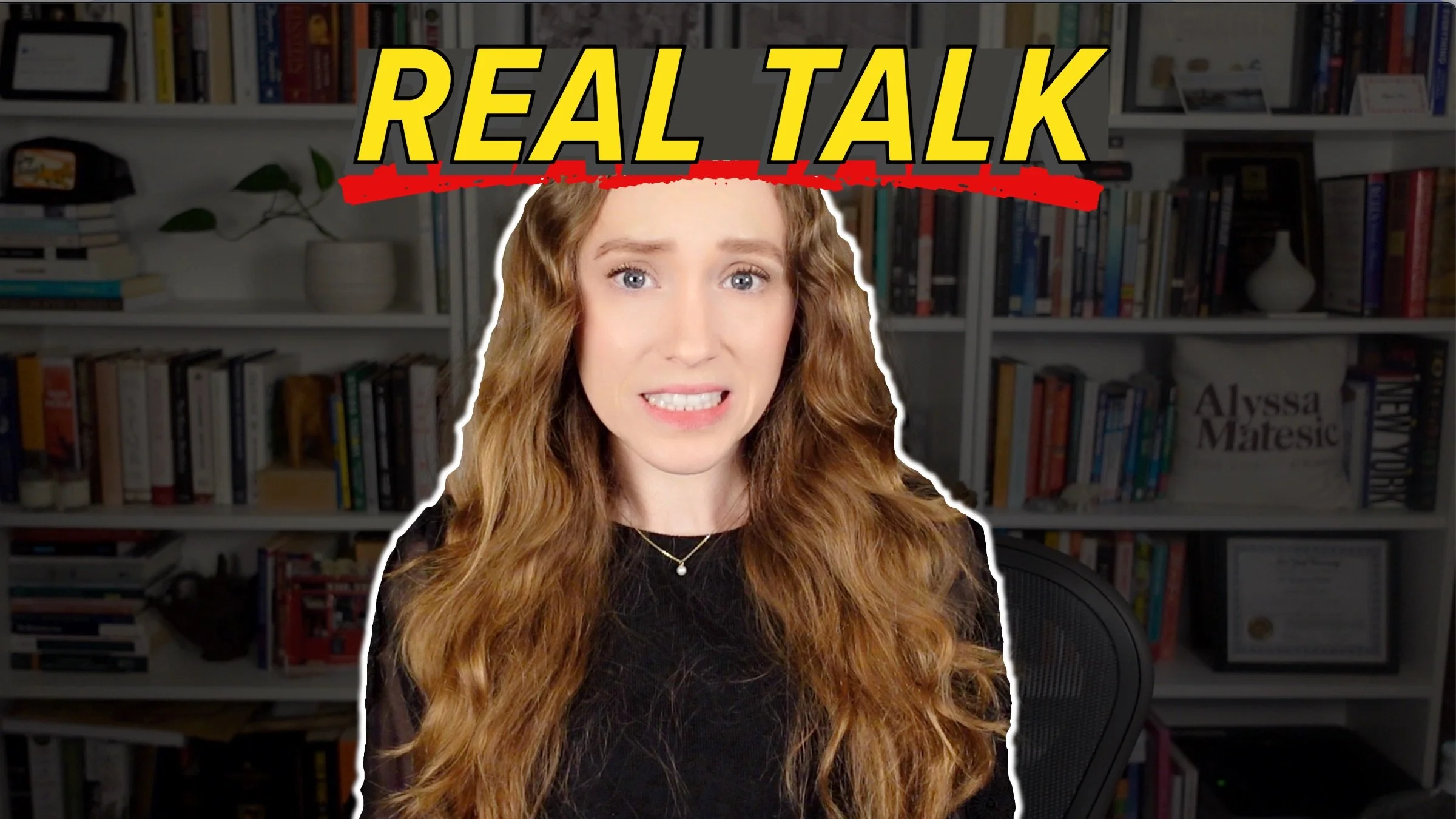The Writer Who Faked Her Own Death — and What Her Story Teaches Us About Authors and Mental Health
HIT PLAY OR READ THE POST BELOW:
Content warning: mental health crisis, bullying, suicide.
In early 2023, the book world was shaken by reports of an indie romance author faking her own death. This story went absolutely viral across TikTok writing communities, the Twitter writing community and even major news platforms across the globe.
If you haven't yet heard this story, don't worry because I'm going to give you the full rundown of what happened. But more than just telling you about this crazy tale, I also wanted to take a moment to reflect on it because I think there are some really valuable lessons that aspiring authors can learn about engaging with the writing community and about the toll that publishing can take on you. It touches on some prevalent issues in the book world, so I want to use this story to open up a conversation about authors and mental health in the writing community.
The Story of the Author Who Faked Her Own Death
First, let's talk about what the heck happened with this author who faked her own death. The story was covered in news outlets, including the BBC, the New York Times and BuzzFeed. I read all of these articles and tried to get as deep of an understanding of what happened as I could.
To give you a summary, it involves an indie romance author named Susan Meachen. She is based in rural Tennessee, and she rocked her very close-knit community of indie romance authors when her death was announced. In fall of 2020, a post apparently written by Susan's daughter appeared on her Facebook group page, which includes her fans and readers as well as other indie romance writers. The post allegedly announced that Susan had died by suicide. Susan had regularly discussed her mental health on her Facebook page and in several instances reported that she was getting bullied by fellow authors and members of the writing community.
Obviously, the news of her death really shook up her fans, her friends and other members of the indie romance writing community, and many people reached out and expressed their grief and their condolences. In the following months, there were some additional posts in the Facebook group linking to Susan's books and explaining that they were still available for purchase. Some members of the community bought those books to show their support for her family, and some people also seemed to give donations directly to the family.
Then, suddenly, in January 2023, Susan herself posted in the group saying that she was in fact alive and that she was ready to start writing again. As you can imagine, this sent her Facebook group members into a frenzy. Many of them felt that they had been lied to; the ones who were close to her even felt they had been betrayed by this friend. Some even called for Susan to be prosecuted for fraud, considering that people had purchased her books trying to support her family in her death, and they claimed that Susan was trying to profit off of this lie.
Since posting the reveal that she is not, in fact, dead, Susan has come out and said that she believed her family posted that initial announcement with the intentions to help her get out of a bad mental health spiral. She has stated she has bipolar disorder, and being part of the sometimes-toxic online writing community challenged her author mental health.
The New York Times reporters spoke to Susan's family, and her daughter reported that she found Susan unresponsive after taking a large dose of Xanax, and it was Susan's husband who had the idea to post the announcement of her suicide on the Facebook group so that she would no longer have to be a member of this writing community. He said in the New York Times article that he takes full blame for all of this controversy.
Since all of this has unraveled, Susan has said that she has put a pause on her decision to return to writing and that she's confident no charges will be filed against her.
What This Story Teaches Us About Authors and Mental Health
I'll let you draw your own conclusions about this incident, but it is clear that people on both sides were hurt in one way or another. Admittedly, I do not have all of the details of the bullying incidents or what was reported about Susan going through an author mental health crises, but I do think that this incident speaks to some things that we often don't talk about when it comes to the writing community and being a part of it as a published author.
I think there are two key things that we can take away from this story, whether you are planning to pursue traditional publishing or self-publishing. As you embark on your publishing journey, keep these things in mind so that you stay empowered and in control.
1. Keep People in Your Corner
It's clear that Susan had a fan base and a support network of fellow writers who truly did care about her. That's why they expressed their condolences and wanted to support her family when her death was announced, and that's why they were so distraught by this news.
When you are embarking on your publishing journey, it is so, so important for you to honor and care for those who support you, whether that be your friends, your family, your fellow authors, your publishing team, and of course your readers. The publishing process can be so distressing. It's full of rejection. You could get bad reviews. Maybe your sales aren't reaching the level you wanted them to. So, truly, lean on the people who are there for you, and in turn, care for them back because they are the ones who are going to help you get through this process, and therefore you should also be there for them. Publishing is not something that a single person is meant to endure alone.
2. It’s Okay to Take a Break
This story shows an extreme example of what can happen if a person is feeling distraught over the discourse and arguments and drama that seem to pervade the publishing industry on both the indie and traditional sides.
If you ever feel like your author mental health is suffering because of being a part of a writing community of any kind, even if that is just being a part of Twitter and following certain hashtags, know that it is totally okay and even advised to take a break from it and step back. Do not feel like you have to engage in these communities if it is counterproductive to your writing or even harmful to your mental well-being.
You can feel pressured to be engaged and build a platform for yourself because it is something that we often talk about in establishing your career as an author, but at the end of the day, what is much more important is you putting yourself and your author mental health first. Otherwise, you will not be in an environment where your writing can thrive, and writing is ultimately your passion and the thing that you should focus all of your efforts around. So, if your writing is not flourishing for whatever reason, because of a community or otherwise, then take a step back.
Thank you so much for reading and happy writing!






